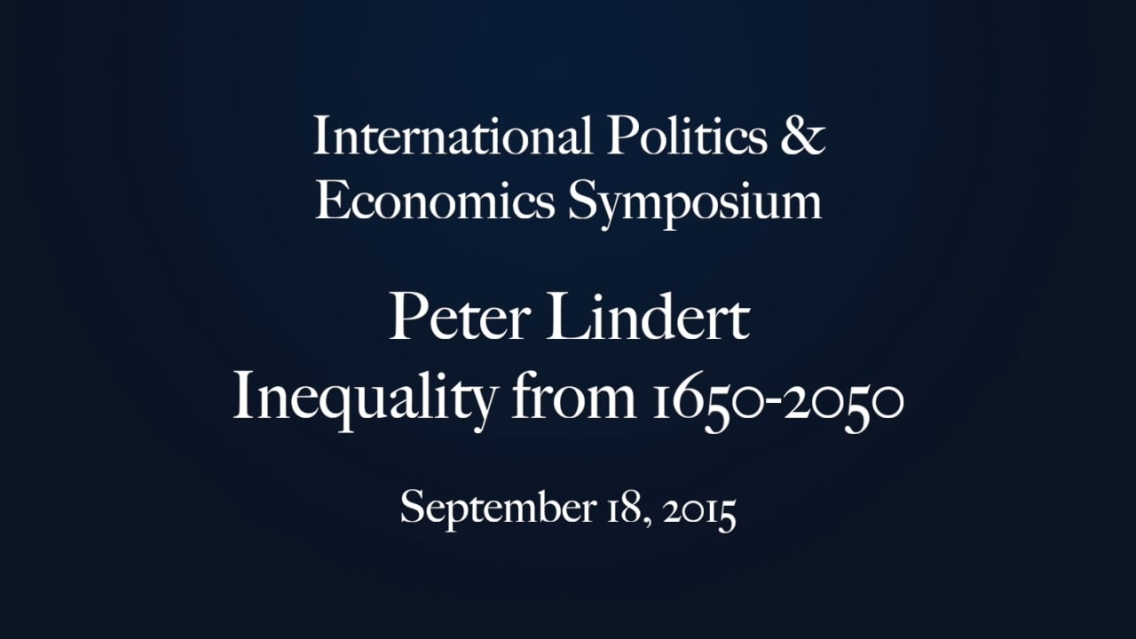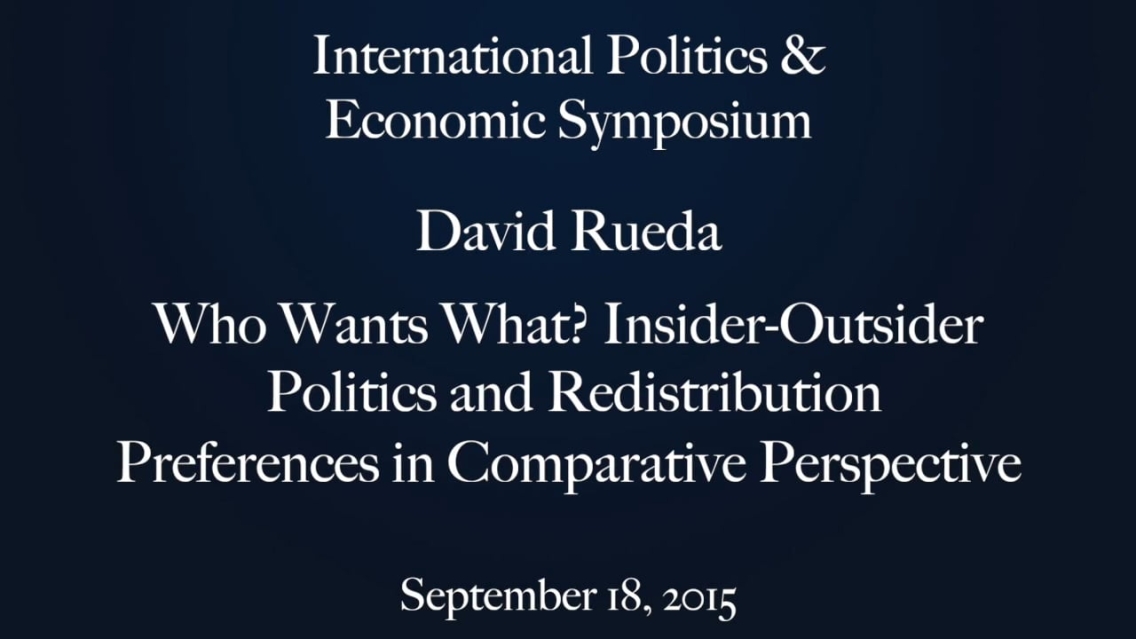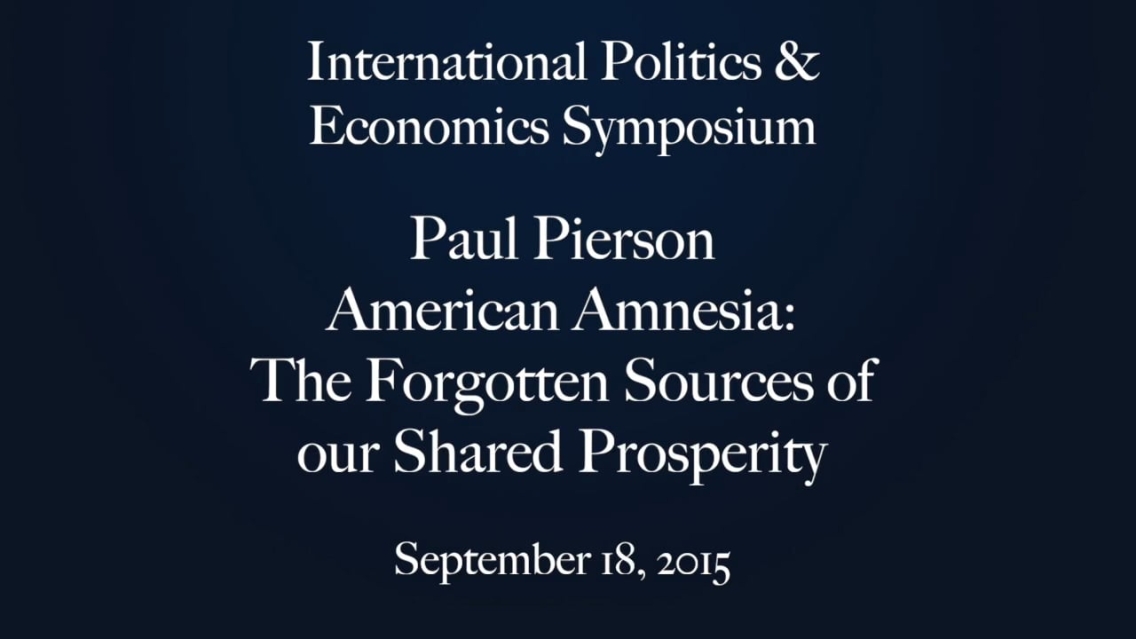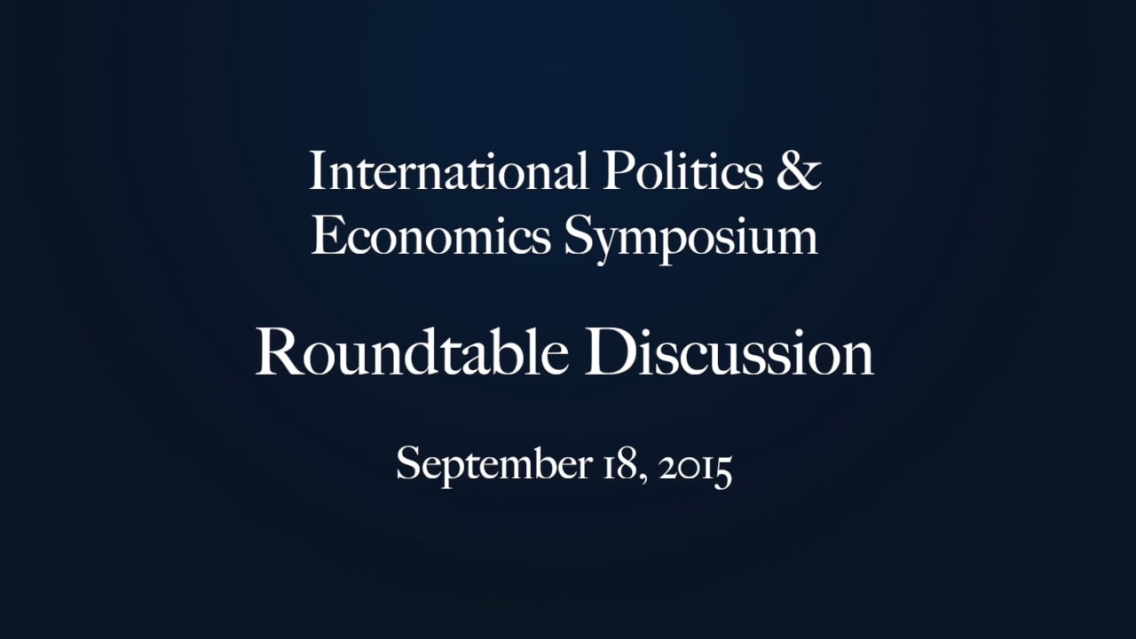Symposium Examines Forces That Drive Economic Inequality
MIDDLEBURY, Vt. – The fourth annual International Politics & Economics Symposium at Middlebury College examined the subject of economic inequality from historical, comparative, and political perspectives.
Held on September 18 at Middlebury’s Rohatyn Center for Global Affairs, the symposium titled “Ill Fares the Land: Inequality in the 21st Century” consisted of three lectures and a roundtable discussion.
Will Pyle, the Dirks professor of international economics and director of the Program in International Politics & Economics, said inequality in the United States has reached its highest level in generations, and that inequality doesn’t contribute to a healthy society.
| Videos from the Symposium |
“The underlying reasons [for economic inequality] are complex, and they likely include a mix of global economic and domestic political factors,” Pyle explained. “To respond effectively we need to understand more fully what is driving inequality. This is especially true for our students, for they are the inheritors of our increasingly unequal society.
“By putting the U.S. trend in both a historical and comparative perspective, I feel the IP&E symposium contributed in a small way to this process of understanding.”
The guest speakers at the symposium were: Peter Lindert, professor of economics at University of California, Davis, on “Inequality from 1650 to 2050”; David Rueda, professor of comparative politics at Oxford University, on “Who Wants What? Insider-Outsider Politics and Redistribution Preferences in Comparative Perspective”; and Paul Pierson, professor of political science at University of California, Berkeley, on “American Amnesia: The Forgotten Sources of our Shared Prosperity.”
The symposium was sponsored by the Programs in International Politics & Economics, European Studies, and Privilege & Poverty; Rohatyn Center; Jones Economic Enrichment Fund; Academic Enrichment Fund; Departments of History, Economics, and Political Science; Scott Center for Spiritual and Religious Life; and Atwater, Brainerd, and Cook Commons.





